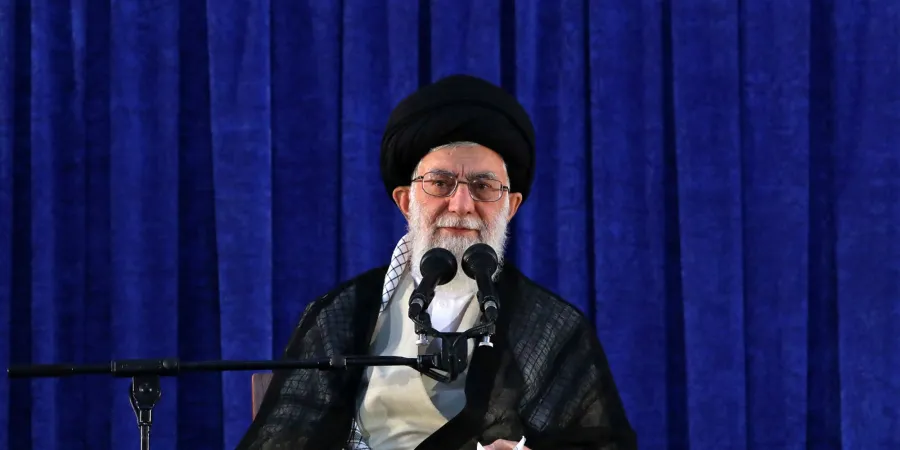Report: Iran’s Supreme Leader Approved Attack on Saudi Oil Facilities
Iranian officials confirmed to Reuters that Ayatollah Ali Khamenei approved the attack on the Aramco facilities following high-level deliberations on how to punish the United States for pulling out of the 2015 nuclear deal
IsraelDefense
| 26/11/2019
A Reuters investigation has concluded that Iran was behind the September 14 attack on Saudi Aramco’s oil facilities, which knocked out half of the kingdom’s oil production.
According to Reuters, Iran’s Supreme Leader Ayatollah Ali Khamenei personally approved the combined drone and cruise missile barrage on two Saudi facilities, on condition that the strike did not target civilians or Americans.
The report describes the deliberations that lead up to the attack, saying it took place in a series of at least five meetings dating back to May in a heavily fortified compound in Tehran, attended by senior IRGC commanders. Khamenei himself attended one of the gatherings.
The main topic on the agenda, according to the report, was how to punish the United States for pulling out of the 2015 nuclear deal and re-imposing economic sanctions on Iran.
“It is time to take out our swords and teach them a lesson,” said a senior commander at one of these secret meetings, according to three officials familiar with the matter, and a fourth official close to Iran’s decision-makers.
Among the possible targets initially discussed were a seaport in Saudi Arabia, an airport, and US military bases. However, those ideas were dismissed over concerns about mass casualties that could provoke fierce retaliation by the US and embolden Israel, potentially pushing the region into war.
One of the sources told Reuters that the plan to attack Saudi Arabia’s oil installations was chosen because it could grab big headlines, inflict economic pain on an adversary and still deliver a strong message to Washington.
Tehran strenuously denies any involvement in the attacks. Alireza Miryousefi, the spokesman for Iran’s mission to the UN, rejected the version of events described in the report. He said Iran played no part in the strikes, that no meetings of senior security officials took place to discuss such an operation, and that Khamenei did not authorize any attack.
Iranian officials confirmed to Reuters that Ayatollah Ali Khamenei approved the attack on the Aramco facilities following high-level deliberations on how to punish the United States for pulling out of the 2015 nuclear deal
A Reuters investigation has concluded that Iran was behind the September 14 attack on Saudi Aramco’s oil facilities, which knocked out half of the kingdom’s oil production.
According to Reuters, Iran’s Supreme Leader Ayatollah Ali Khamenei personally approved the combined drone and cruise missile barrage on two Saudi facilities, on condition that the strike did not target civilians or Americans.
The report describes the deliberations that lead up to the attack, saying it took place in a series of at least five meetings dating back to May in a heavily fortified compound in Tehran, attended by senior IRGC commanders. Khamenei himself attended one of the gatherings.
The main topic on the agenda, according to the report, was how to punish the United States for pulling out of the 2015 nuclear deal and re-imposing economic sanctions on Iran.
“It is time to take out our swords and teach them a lesson,” said a senior commander at one of these secret meetings, according to three officials familiar with the matter, and a fourth official close to Iran’s decision-makers.
Among the possible targets initially discussed were a seaport in Saudi Arabia, an airport, and US military bases. However, those ideas were dismissed over concerns about mass casualties that could provoke fierce retaliation by the US and embolden Israel, potentially pushing the region into war.
One of the sources told Reuters that the plan to attack Saudi Arabia’s oil installations was chosen because it could grab big headlines, inflict economic pain on an adversary and still deliver a strong message to Washington.
Tehran strenuously denies any involvement in the attacks. Alireza Miryousefi, the spokesman for Iran’s mission to the UN, rejected the version of events described in the report. He said Iran played no part in the strikes, that no meetings of senior security officials took place to discuss such an operation, and that Khamenei did not authorize any attack.



